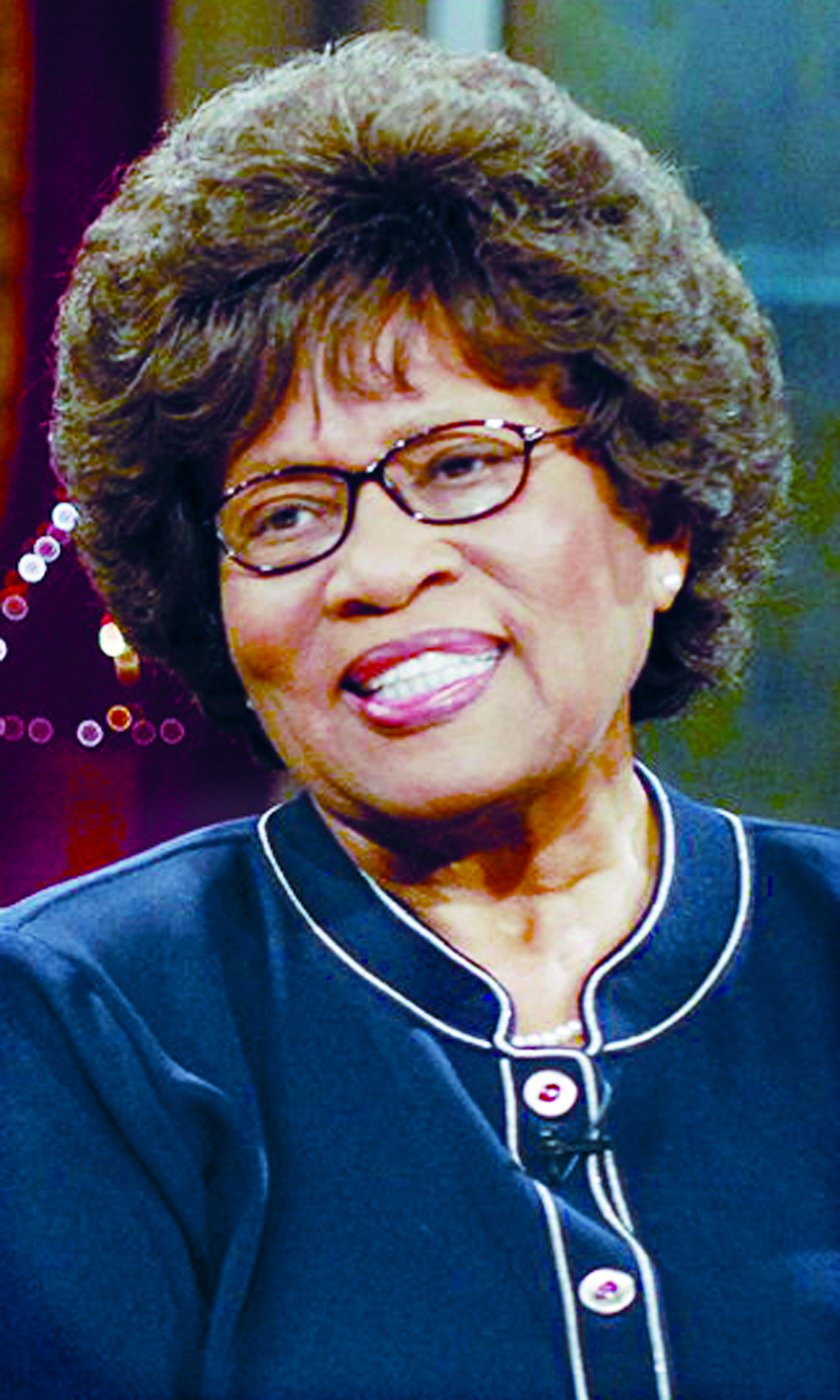PORT ANGELES — Dr. Joycelyn Elders wasn’t afraid to rile people when she was U.S. surgeon general, and she’s certainly not afraid to rile them now.
Fired in December 1994 from her federal post in the Clinton administration after controversial statements about sexuality and drugs, Elders wasn’t silenced, either.
She returned home to the University of Arkansas to teach pediatric medicine.
At 78, she’s “retired,” though still working: She lectures on children’s health around the country and will come to Port Angeles on Friday to give the keynote speech at Peninsula Behavioral Health’s second annual fundraising dinner.
Reservations must be made by noon Friday for the 5 p.m. event at the Vern Burton Community Center, 308 E. Fourth St.
Tickets are $100 per person, or $750 for a table for eight.
Proceeds benefit Peninsula Behavioral Health’s services for adults, children and families.
To purchase tickets, phone 360-457-0432, ext. 227.
Reached at her Arkansas home Wednesday, Elders didn’t flinch at questions about her firing or her views on sex education, legalized marijuana and her own desire to keep working.
Elders was born Minnie Lee Jones in rural, segregated Schaal, Ark., the oldest of eight children. She went on to earn a biology degree at Philander Smith College in Little Rock, Ark., then joined the Army in 1953 and trained as a physical therapist.
After three years in the military, Elders earned her medical degree at the University of Arkansas; became director of the Arkansas Department of Health; and served as a professor of pediatrics.
She was appointed U.S. surgeon general in January 1993.
She was the second woman and the first African-American to hold the position, and she filled her 15 months in office with frank talk.
In December 1993, for example, she spoke out on legalizing some drugs, saying such changes could reduce crime.
The following year, she attended a United Nations conference on AIDS and was asked what she thought about promoting masturbation as a way to prevent young people from getting into riskier sexual activity.
“I think that it is part of human sexuality and perhaps it should be taught,” Elders responded.
She lost her job after that — and immediately got back to work as a professor at the University of Arkansas.
“I left the government payroll on Jan. 2 and got back on it on Jan. 3,” she recalled for the Peninsula Daily News.
Elders resumed her teaching career at the university despite ongoing criticism.
“The legislators in Arkansas thought I would ‘contaminate’ the medical students with my views,” she said.
Her views were that teachers and parents needed to talk openly about sex.
Look, she told her critics, Arkansas has one of the highest rates of teenage pregnancy in the industrialized world, and “somebody needed to talk about it.”
Sex is, after all, what young people are thinking about, she said.
“The thing we’ve got to do as a society is teach [young people] how to be sexually healthy” by protecting themselves against disease and unplanned pregnancy, she said.
“We need to be honest with our children. It’s more than just saying no; it’s about being responsible and making sure they are taking care of themselves.
“People say, ‘Dr. Elders, condoms will break.’ I say the vows of abstinence will break far more easily.
“We’re sexual beings from birth till death, and we need to take care of our sexuality.”
HIV infection rates are rising rapidly among people older than 50, Elders noted, “so we can’t blame it all on the young people.”
As for her views on illegal drugs, Elders said she feels as strongly as ever.
“The drug war has caused far more tragedy than it helps,” she said.
Millions of young people are incarcerated, with a large percentage of them behind bars for marijuana offenses, Elders added.
Instead of imprisoning them, “we should be treating them and putting them in college,” she said.
Alcohol, Elders said, has caused more death and grief than pot has.
“People who need marijuana for medicine should have it,” she added.
Elders lives by a list of health practices that are well-supported by expensive government studies: Eat three meals and two snacks a day, sleep six to eight hours a night, don’t drink excessively, exercise five days a week for 30 minutes or more and, as she put it, “don’t sleep around.”
So whenever she has an opportunity, Elders spreads her message about what youngsters need now.
They need a “hope package” as they come through high school, she said. She’s seen what hope can do for kids and said she’s proud of today’s teenagers for striving to go to college and give back to their communities.
“But we still have too many dropouts, too many pushed-outs,” Elders said.
“We have to reach them where they are and bring them along.
“Our responsibility is to let them know: We care.”
________
Features Editor Diane Urbani de la Paz can be reached at 360-452-2345, ext. 5062, or at diane.urbani@peninsuladailynews.com.

